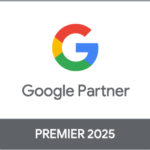Are you a digital marketer struggling to keep up with the rapid changes in our industry? Maybe you’re overwhelmed by all the tools, techniques, and strategies that seem essential for success.
We understand how frustrating it can be when your efforts don’t yield the desired results.
After extensive research and firsthand experience, we’ve identified what works best. For example, mastering Google Ads is vital—a skill set we found indispensable. This blog will guide you through the top skills every digital marketer should master to stay ahead of the curve.
We’ll cover everything from technical skills like web analytics implementation to advanced areas such as Conversion Rate Optimization (CRO) and mobile apps marketing. Stay tuned; you’ll find practical tips and expert advice throughout this article.
Key Takeaways
- Master Key Technical Tools: Proficiency in Google Ads, Facebook Ads, and web analytics tools like Google Analytics is essential for tracking and optimizing digital marketing campaigns.
- Importance of Data Analysis: Analyzing data helps identify high ROI keywords and user behavior patterns, allowing for more efficient budget use and improved conversion rates.
- Effective Reporting Tools: Learning platforms like Google Data Studio and Tableau can help visualize complex data trends to make better decisions.
- Copywriting Skills Matter: Good copy attracts attention and converts leads. Crafting strong headlines and calls to action is key across all content forms.
- Strong Interpersonal Skills Needed: Clear communication with clients ensures alignment of marketing plans with their goals. Teamwork boosts productivity by combining diverse expertise.
Essential Technical Skills for Digital Marketers

**Essential Technical Skills for Digital Marketers**
To excel in digital marketing, mastering key technical skills is crucial. Effective ad campaigns on Google and Facebook can drive significant results while understanding web analytics helps track performance and refine strategies.
Google Ads and Facebook Ads
Google Ads and Facebook Ads are vital tools for any digital marketer. Both platforms allow us to target specific audiences with precision, using various metrics like age, location, interests, and more.
Google Ads focus on search engine marketing (SEM), presenting our ads in search results when users type relevant keywords. We need to create compelling ad copy and choose the right keywords to ensure maximum visibility and clicks.
Facebook Ads excel at social media marketing by targeting users based on their activity on the platform. Facebook’s powerful algorithms help us reach users who are most likely interested in our products or services.
We can use different formats such as image ads, carousel ads, and video ads to engage our audience effectively.
Web Analytics Implementation measure the success of these campaignsIn digital marketing, mastering ad platforms is crucial for driving growth.
Web Analytics Implementation
Managing Google Ads and Facebook Ads campaigns demands precision and insights, making web analytics implementation vital. We need to master tools like Google Analytics for collecting and analyzing user data.
Creating detailed reports helps us understand the effectiveness of our ads campaigns. Data segmentation allows us to dive deep into user behavior, providing a clearer picture of our target audience.
Employing tools such as Google Tag Manager simplifies tracking event-based actions on landing pages or websites without continuous code changes. Learning these skills is easy with the plethora of online resources available.
Mastering web analytics equips us with actionable insights crucial for enhancing customer experience and boosting ad performance, ultimately driving better results for our marketing strategies.
Importance of Data Analysis in Digital Marketing

Data analysis is crucial in digital marketing. It transforms raw data into meaningful insights, driving business decisions and enhancing campaign performance. For example, Google Ads specialists need to identify which keywords deliver the highest ROI.
They also need to understand how different demographics interact with ads on social media platforms like Instagram.
Knowing how to analyze data sets us apart from those who only know implementation skills. Understanding web analytics helps us track user behavior and optimize our strategies accordingly.
Mastering these analytical skills can pinpoint areas for improvement in pay-per-click advertising campaigns, leading to more efficient use of budgets and higher conversion rates.
Reporting and Data Visualization Tools
Understanding reporting and data visualization tools is crucial for any digital marketer. These platforms help us interpret complex data, making it easier to identify trends and make informed decisions.
Google Data Studio and Tableau
Google Data Studio and Tableau have become essential tools in digital marketing. We use them to create dashboards that provide clear visualizations of data trends. With these platforms, we can track the performance of our Google Ads campaigns and PPC strategies more effectively.
Both tools support integrations with various data sources, allowing us to pull in information from multiple platforms.
Learning Google Data Studio is straightforward due to numerous online tutorials that guide us step by step. Tableau offers a range of advanced visualization options which are perfect for making complex data easily understandable.
These skills help enhance our digital marketing capabilities, enabling better decision-making through insightful reports and visuals.
Proficiency in Google Sheets and Excel
Proficiency in Google Sheets and Excel is crucial for managing large accounts and making bulk changes. We need to master various formulas, functions, query features, pivot tables, and charts.
Mastering these tools enhances our efficiency by handling large datasets effectively. Using formulas like VLOOKUP or INDEX-MATCH helps us quickly find data across multiple sheets.
Additionally, pivot tables help organize data into a more digestible format swiftly. Charts transform raw numbers into visual insights that are easier to interpret. The ability to apply conditional formatting can highlight key metrics and trends automatically.
Let’s explore advanced skills such as BigQuery SQL next.
Advanced Skills for Digital Marketers
Mastering advanced skills can elevate our digital marketing strategies significantly. These abilities help us optimize campaigns, analyze complex data, and create more engaging user experiences.
BigQuery SQL
BigQuery SQL allows us to handle big data efficiently. For those familiar with SQL, learning BigQuery becomes more straightforward. This tool helps us manage and analyze vast amounts of PPC data effectively, giving us insights into our ad performance.
Leveraging BigQuery SQL in our digital marketing strategy enhances our ability to perform advanced analytics. We can use this skill to optimize campaigns across Google Ads and other social platforms, driving better ROI for our clients.
Data-driven decisions become seamless when we integrate BigQuery with Google Sheets or Excel for superior reporting capabilities.
Conversion Rate Optimization (CRO)
Improving our conversion rate optimization (CRO) can significantly boost our campaign performance. CRO helps us enhance the overall effectiveness of our website or landing pages, making them more appealing and efficient for users.
Using tools like Google Optimize or Optimizely, we can conduct A/B testing to see which versions of a page work better. Small changes such as adjusting headlines, improving call-to-action buttons, or simplifying navigation can have a major impact on key performance indicators (KPIs).
Our focus must be on both settings/configurations and site usability. Balancing these factors ensures that potential customers not only visit but also engage with our content in meaningful ways.
Effective CRO improves user engagement by identifying pain points through data analysis and then systematically addressing those issues. This approach not only enhances the user’s journey but ultimately translates into higher sales conversions and improved return on investment (ROI).
Google Analytics 4
Google Analytics 4 is the future of web analytics, and we should start learning it now. It focuses on event-based tracking, similar to Google Firebase. This is a new traffic tracking methodology that aligns with modern digital marketing needs.
GA4 isn’t fully recommended for e-commerce yet but offers significant advantages for PPC specialists like us. With its advanced features, we can track user engagement more accurately across various platforms and devices.
Analyzing this data helps optimize our performance marketing campaigns efficiently.
Google Firebase
Firebase offers powerful tools for mobile app analytics and marketing. We can track user behavior, run conversion rate optimization (CRO) tests, and send push notifications—all in one place.
With Firebase, we gain insights into how users interact with our apps. This helps us make data-driven decisions that improve user engagement.
Additionally, Firebase’s in-app marketing features allow us to deliver personalized content directly to users’ phones. The platform’s niche makes it a valuable skill set for those of us specializing in Google Ads or PPC campaigns.
Next, let’s look at the capabilities of Google Ads Editor for managing ad campaigns efficiently.
Google Ads Editor
Google Ads Editor is essential for working more efficiently in PPC management. It allows us to make bulk changes quickly and manage multiple accounts with ease. The tool supports offline editing, which means we can work on campaigns without an internet connection and upload changes later.
We find it particularly useful for large-scale account modifications like updating bids, changing ad copy, or adding new keywords across many campaigns at once. The interface is user-friendly yet powerful, making complex tasks simpler.
Given its continuous improvements and relevance, mastering this tool boosts our productivity and accuracy significantly in digital marketing efforts.
Mobile Apps Marketing
After mastering the Google Ads Editor, we should turn our focus to mobile apps marketing. This area requires understanding unique ad campaigns and tools tailored for mobile environments.
Unlike search and display ads, mobile app ads emphasize smart bidding and ease of campaign creation. We need to grasp these differences to create effective strategies.
Learning about growth hacking, mobile app analytics, and mobile app SEO is vital. These skills allow us to optimize user engagement and track performance effectively. Understanding how users interact with our apps helps us refine targeting and improve conversion rates.
Using platforms like Google Firebase can provide deep insights into user behavior.
Apps offer tremendous opportunities for brand awareness through push notifications and in-app promotions. As digital marketers, leveraging these features can lead to higher retention rates and better customer relationships management.
Mastering these aspects of mobile apps marketing expands our capabilities as versatile professionals in the digital landscape.
Google Marketing Platform for Enterprise
Google Marketing Platform for Enterprise combines powerful tools with fewer limitations, making it ideal for managing large-scale marketing campaigns. Tools like Google Analytics 4 and BigQuery SQL allow us to gain deep insights into consumer behavior across various platforms.
This data helps us optimize our strategies in real-time.
Our ability to access advanced features enhances our capabilities in search engine optimization (SEO) and content marketing. We can track user engagement effectively using Google Firebase and visualize complex data sets through Google Data Studio.
These tools are crucial when working with major clients who demand precise, actionable insights.
The platform also integrates seamlessly with Google Ads Editor, enabling efficient management of extensive ad campaigns. Mobile apps marketing becomes more streamlined using this suite as well.
Despite limited resources available for learning these enhanced tools, mastering them significantly boosts our potential as digital marketers dealing with high-profile accounts.
Mastery of Automation and Copywriting
Automation tools can save us time and effort by streamlining repetitive tasks in our campaigns. For instance, marketing automation platforms like Mailchimp help us manage email marketing more efficiently.
We should familiarize ourselves with Google Ads’ smart features despite any reservations we might have. These smart features have improved significantly over time, making ad management easier and more effective.
Effective copywriting is essential to capture the target market’s attention. Simple rules such as including a clear call-to-action (CTA) can make our ads more compelling. Numerous resources are available to learn digital copywriting skills, whether through online courses or books.
Crafting crisp, engaging content ensures better user engagement and enhances social media strategies across different channels like LinkedIn and Facebook Ads.
Developing Digital Marketing Strategies
Creating a digital marketing strategy demands strategic thinking and planning. First, we start with understanding our target demographic. Who are the customers? What do they need? Knowing these answers helps craft messages that resonate.
We must gather data through surveys, user research, and market analysis to paint an accurate picture of the audience.
Next, it’s critical to set clear goals. Do we aim for increased website traffic or higher conversion rates? Specific objectives guide every marketing action we take. Integrating tools like Google Analytics or web analytics helps measure progress toward these goals.
Lastly, leveraging multiple marketing channels ensures broad reach and greater engagement with potential customers. Content creation plays a big part here—creating blog posts, social media campaigns, and email newsletters all contribute to visibility online.
Each piece should align with the overall brand image while addressing customer needs effectively.
Interpersonal skills help build better relationships both within our team and with clients or stakeholders in this area…
Interpersonal and Communication Skills
We can craft brilliant strategies, but they won’t work without strong interpersonal and communication skills. Effective communication ensures our plans align with clients’ goals and expectations.
By actively listening to their needs, we build trust and maintain positive relationships, leading to smoother project executions.
As digital marketing experts, it’s crucial to persuade clients about the value of our campaigns. Clear explanations foster understanding even on complex topics like data analytics or Conversion Rate Optimization (CRO).
Simple tools like regular updates via email or quick check-ins through video calls can make a significant difference in client satisfaction.
Moreover, teamwork within our agency is essential for success. Collaborative efforts between SEO specialists, content creators, and PPC analysts streamline processes and enhance overall productivity.
Good interpersonal skills help us solve problems more efficiently by sharing diverse perspectives across different areas of expertise.
Time Management and Multitasking Abilities
Balancing multiple Google Ads campaigns and client demands requires efficient time management. Prioritizing tasks keeps us focused on what matters most. We should start with high-impact activities like creating PPC strategies or analyzing web analytics data.
Allocating slots for specific tasks helps in avoiding distractions. Digital tools like HubSpot can streamline our schedules, ensuring we meet deadlines without feeling overwhelmed.
Taking breaks is as crucial as hard work for maintaining productivity. Short downtime periods rejuvenate our thinking process, leading to better decision-making and problem-solving skills.
Combining planning with relaxation ensures we avoid burnout while handling diverse marketing responsibilities effectively.
Conclusion
### Mastery of Automation and Copywriting
Mastering automation is essential for streamlining tasks. Tools like Google Ads Editor enable us to manage large campaigns efficiently. Automation helps in scheduling posts, sending emails, and managing bids without constant supervision.
Copywriting is another crucial skill. Good copy attracts attention and converts leads into customers. It involves writing compelling ads, social media posts, and email marketing content.
We need to be persuasive yet concise.
Learning how to craft captivating headlines can make a big difference. Strong calls to action (CTAs) guide potential clients toward desired actions. These skills help in creating engaging content across various platforms.
### Developing Digital Marketing Strategies
Creating effective strategies requires understanding our audience deeply. We use data analysis tools like Google Analytics 4 to gain insights into user behavior. This information guides us in tailoring our campaigns.
We also conduct market research to identify trends and opportunities. Knowing what competitors are doing helps us stay ahead in the game.
Setting clear goals is vital for tracking progress. We define KPIs (Key Performance Indicators) that align with business objectives—whether it’s increasing website traffic or boosting conversion rates.
Experimentation plays a significant role too; we test different approaches to see what works best for each campaign.
### Interpersonal and Communication Skills
Communication skills are key when working as digital marketers because they help build strong relationships with clients and team members alike through clarity in sharing ideas easily understood by everyone involved which fosters trust between all parties concerned leading towards better collaboration throughout projects from start till end!
Interpersonal abilities such as active listening empathy patience negotiation conflict resolution adaptability assertiveness open-mindedness creativity curiosity positivity enthusiasm problem-solving thinking critically analyzing situations logically objectively making decisions confidently precisely efficiently these qualities contribute greatly ensuring successful outcomes every time!
### Time Management and Multitasking Abilities
Organizing schedules effectively enables handling multiple projects simultaneously while meeting deadlines consistently! Prioritizing tasks based on importance urgency ensures focus remains intact preventing distractions hindering productivity levels allows balancing workload seamlessly achieving desired results effortlessly maintaining high standards quality delivered always!
Multitasking mastering enhances efficiency enabling switching smoothly between varied activities requiring attention swiftly promptly addressing pressing matters matter demand thereby optimizing performance overall significantly improving output maximizing success rates exponentially!
FAQs
1. What are the essential skills for a digital marketer?
Digital marketers need to master customer relationship management, graphic design, and user experience design. These skills help in creating engaging content and managing customer interactions.
2. How important is web development knowledge for digital marketers?
Web development knowledge is crucial for digital marketers. It allows them to create effective websites that enhance user engagement and improve online platform performance.
3. Can photo editing tools like Photoshop benefit a marketing manager?
Yes, knowing how to use photo editing tools like Photoshop can greatly benefit a marketing manager by enabling them to create appealing advertisements and visual content.
4. Why should we focus on SEO tools as part of our skillset?
SEO tools are vital because they help us with link building and improving search engine rankings, which drives more traffic to our websites.
5. Is coding necessary for all digital marketers?
While not every digital marketer needs advanced coding skills, basic knowledge of coding can be very helpful in developing mobile applications or making quick website adjustments.











